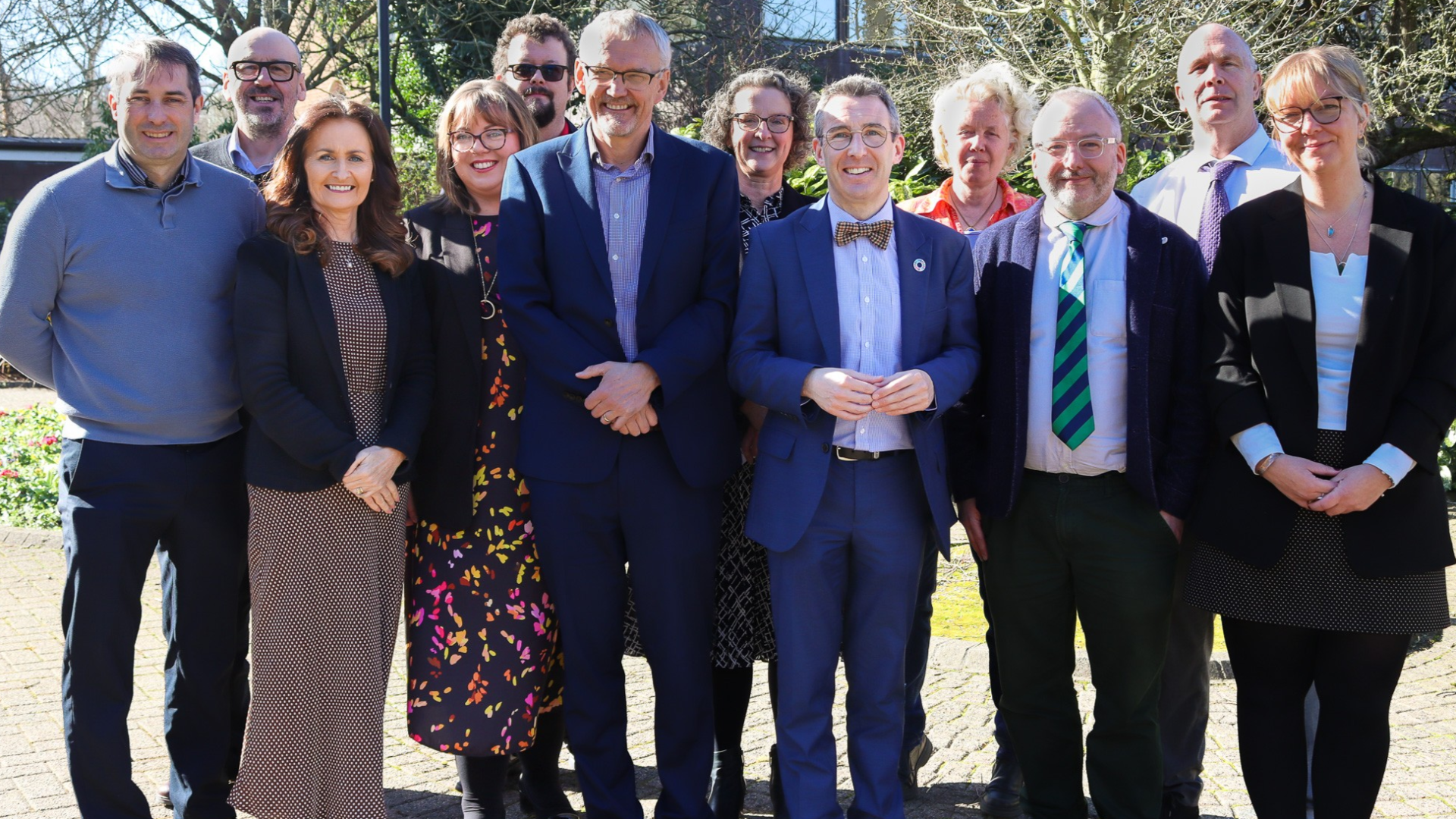An independent High Level Science Advisory Group (HLSAG) comprised of leading scientists from across the UK and Ireland has been established to support DAERA in its development of sound, evidence-based policies across agriculture, environment and rural affairs in Northern Ireland.

Members have been appointed following a competition which commenced in July last year. The Group held its inaugural meeting in CAFRE’s Greenmount campus where they were welcomed by DAERA Minister Andrew Muir.
Minister Muir said: “I am delighted to announce the creation of this independent group drawn from a wide range of academic disciplines. Their expert advice will be central to the vision of DAERA, putting science at the heart of policy development and delivery.”
The chair of the group is Professor Michael Whelan, a Professor of Environmental Science at the University of Leicester, specialising in data modelling of environmental systems and in understanding the behaviour and effects of pollutants and nutrients in soil and water.
Professor Whelan said: “I am thrilled to have been appointed as the chair of the new HLSAG. DAERA is currently facing a number of substantial challenges and policy needs to be informed by strong scientific evidence. I hope that the Group can add value to the science base being established by the wider DAERA team and I look forward to engaging in the discussions.”
Members of the HLSAG are: Dr Adrian Allen, Professor Phil Haygarth, Professor Maeve Henchion, Dr Gillian Gilbert, Professor David Kenny, Dr Esther Skelly-Smith, Dr Katharine Steentjes and Dr Thomas Woolley, whose collective expertise will provide independent, strategic guidance and challenge on all aspects of departmental science activities.
Minister Muir added: “This new advisory group will be an important resource to further strengthen DAERA’s ability to access, interpret and understand scientific evidence which will be critically important to inform DAERA’s response to key strategic challenges.
“These include tackling climate change; protecting our natural environment; supporting sustainable, resilient and productive agri-food and fisheries sectors; safeguarding animal health and welfare and plant health and building strong, sustainable and diverse rural communities. To deliver on these challenges, I place a strong value on the role of academia and the provision of science for evidence-based decision making.
“I fully recognise that the successful delivery of DAERA’s policy, operational and regulatory responsibilities are of fundamental importance to the environmental, economic and social well-being of Northern Ireland.”



